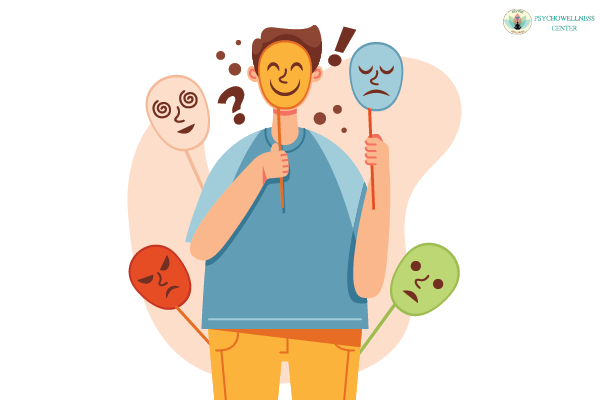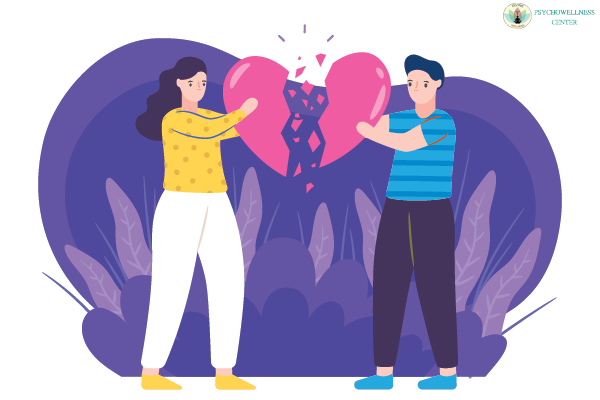What Are the Benefits of Emotional Mirroring on Mental Health

Every day brings many problems that threaten our peace of mind and well-being. Any time something unexpected could whirl at us and disrupt our lives. Some circumstances only tug at our souls, while others could prompt our reactions to frustration and anger. If we're confronted with an angry boss, an exhausted and cranky partner, or even a frustrated child, our reaction will determine the outcome of any communication. Consider this for a minute and consider that we can alter how we react to any circumstance by the way we respond! This skill of social intelligence is known as emotional mirroring or resonance.
Mirroring of emotions is an unintentional event that happens when friends are faced with the same issue and then get stuck on discussing it repeatedly and in a negative manner and are unable to move on or come up with a solution. The issue recurs between them and gets bigger, not less, because they are absorbed by the other's anxieties and worries. Of course, discussing an issue with a friend who's going through the same experience is beneficial. It can ease tension and allow us to gain insights, and it's good to know that we're not isolated; it could also assist in finding the solution. Because the two people involved in the scene display similar gestures and nonverbal expressions it is possible that they believe they share the same attitudes and thoughts. Mirror neurons respond to these gestures and trigger them and allow the people to feel a sense of connection and belonging to the environment.
Sometimes, however, when discussions don't come up with positive outcomes, leaving us feeling more depressed than we did before, we might have fallen into a collective reflection, and when we find ourselves looking back at us, we lose perspective and are less motivated to solve problems. We do not want to own the feelings we are uncomfortable with, so when someone else feels their feelings too, it may make us believe that they're fine. There are times when mirroring emotions can be a problem.
Warning signs for emotional mirroring
Are you having the same conversation with that same individual?
Do you feel exhausted, instead of nourished, following your conversation?
Are you talking on issues that weren't initially yours?
It's difficult to differentiate your opinion on the issue from what other person's views are?
Do you feel tight muscles, knots in your stomach, or a slumped back after speaking?
Are you anxious or are you finding it difficult to focus after talking to them?
Mirroring may help signal relationships problems
Mirroring helps you become acquainted with each other in the beginning. However, once you've passed the honeymoon stage It should be more natural. Are you not feeling it? Consider this an occasion to look at the situation and look at how your relationship is doing. For instance, if you were able to hold hands tightly, with your bodies touching and touching each other's backs, and now only hugging on only the upper part of your bodies and you're not feeling as intimate. This could indicate that something's not right within your relationships. Ask your spouse to let you know if they've noticed changes in the way you interact with each other. If both of you notice the difference then you're in a situation where you can collaborate to repair the relationship. If it's a romantic bond or friendship, I usually begin by encouraging two people who are keen on re-establishing their relationship to remain in the same spot and look at each other's eyes for three minutes.
Yes, it's an extended time to look at your partner but it's also restarting the mirroring. It's the same position and looking each other in the eye simultaneously and this causes the brain's chemicals to start working again. It's a subconscious feeling of trust however it's one that's constructed in a conscious way. What is the reason it works? Looking at each other like it creates a sense of vulnerability that isn't many of us willing to share with. That vulnerability can create anxiety, anger and frustration. Take help from a Counselling psychologist or search for a Therapist near me, by searching for the Best psychologist delhi.
Using Mirroring to Build Strong Bonds
In the case of marriage, the couple may already be reflecting on one another however it's not the only one that you'll need to develop. You're also in a position that you'll be forming bonds and connections with people who are part of the life of your partner, such as your relatives. When you first meet your mother-in-law, for instance, take the first couple of minutes listening attentively. Remove your filter and your own self-image, and try to put yourself in her shoes. If you are able to get away from your own ways, you'll be able to get an impression of her and might be able to control your posture and behaviour to establish the same mindset with her.
It's not easy however, active listening will help you understand the dialect they are using or the posture they are in, it will allow you to begin to establish a connection. When we talk about building rapport it's about helping the person A (in this case , your mother-in-law) to feel at ease in their own skin that they can allow Person B to be themselves (that's you! ) Then, Person B is at ease and builds a relationship.
Steps to Help Others Feel Understood
Accept that emotion isn't negative or good; it is just energy that is reflected in movement.
Realise your partner's emotional state is not about you.
Decide to be honest, non-judgmental and lovingly free.
Determine the emotion -- angry and sad, frustrated or happy, exuberant or anything else.
Be sure to accurately reflect what they are experiencing and saying to ensure the person feels heard.
If you are having difficulty following these steps It could mean that you must relax before reacting. Sometimes, other people's experiences and their feelings can cause us to feel emotions. Like looking waves or ripples in water can create distortion, too much emotions can cause distortion too. If you react, and your friend's emotions do not dissipate this could be an indication that you missed some or all the steps mentioned above. Be aware of yourself, focus on your heart, and then try again. Seek Online counselling from the Best psychologist in India to get insight about your emotions and dwell upon your relationship with the help of online Relationship counsellor.
Schedule a mental health therapy session at the Psychowellness Centre. well-known and competent psychologists. The facility is near NOIDA, Janakpuri, Dwarka, Faridabad, and Delhi NCR.
Contribution: Dr (Prof) R K Suri, Clinical Psychologist, life coach & mentor TalktoAngel & Mr. Utkarsh Yadav Psychologists.




SHARE